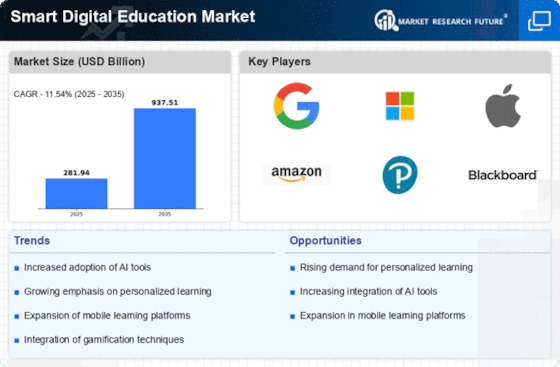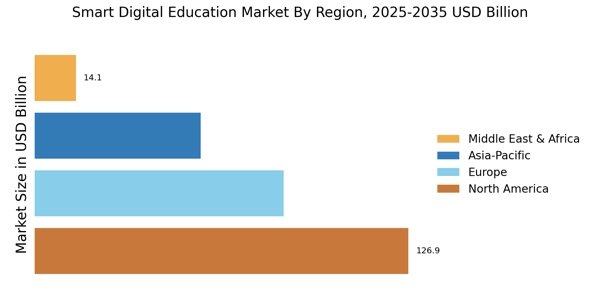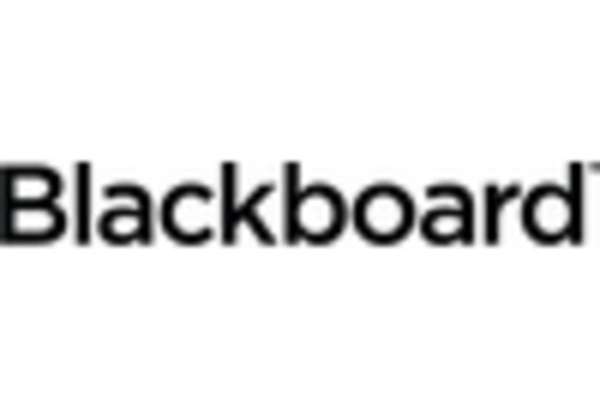Technological Advancements
The Smart Digital Education Market is experiencing rapid technological advancements that enhance learning experiences. Innovations such as artificial intelligence, machine learning, and augmented reality are transforming traditional educational methods. For instance, AI-driven platforms can analyze student performance and tailor educational content to meet individual needs. According to recent data, the adoption of AI in education is projected to grow at a compound annual growth rate of 45% over the next five years. This trend indicates a shift towards more personalized and effective learning environments, which could significantly impact the Smart Digital Education Market.
Increased Internet Penetration
The Smart Digital Education Market benefits from the increasing penetration of the internet across various regions. As more individuals gain access to high-speed internet, the potential for online learning expands. Reports suggest that internet penetration rates have reached approximately 60% in many areas, facilitating the growth of e-learning platforms. This accessibility allows educational institutions to offer a wider range of courses and resources, thereby attracting a larger audience. Consequently, the Smart Digital Education Market is likely to see a surge in demand for online educational tools and resources.
Government Initiatives and Funding
Government initiatives and funding play a crucial role in the Smart Digital Education Market. Many governments are investing in digital education to enhance learning outcomes and bridge educational gaps. For example, various countries have launched programs aimed at integrating technology into classrooms and providing resources for online learning. These initiatives often include financial support for educational institutions to adopt digital tools. As a result, the Smart Digital Education Market is likely to benefit from increased investment and support, fostering innovation and accessibility in education.
Rising Demand for Skill Development
The Smart Digital Education Market is witnessing a rising demand for skill development and vocational training. As industries evolve, there is a growing need for workers to acquire new skills to remain competitive. Data indicates that over 70% of employers prioritize candidates with relevant skills, which has led to an increase in online courses and certifications. This trend suggests that educational providers are adapting their offerings to meet the needs of the workforce, thereby driving growth in the Smart Digital Education Market. The focus on skill development is likely to continue shaping educational strategies in the coming years.
Growing Popularity of Mobile Learning
The Smart Digital Education Market is increasingly influenced by the growing popularity of mobile learning. With the proliferation of smartphones and tablets, learners are seeking flexible and accessible educational solutions. Mobile learning applications allow users to engage with educational content anytime and anywhere, which aligns with the demands of modern learners. Recent statistics indicate that mobile learning is expected to account for over 50% of all online learning by 2026. This trend suggests that educational providers must adapt their strategies to incorporate mobile-friendly content, thereby enhancing the overall experience in the Smart Digital Education Market.

















